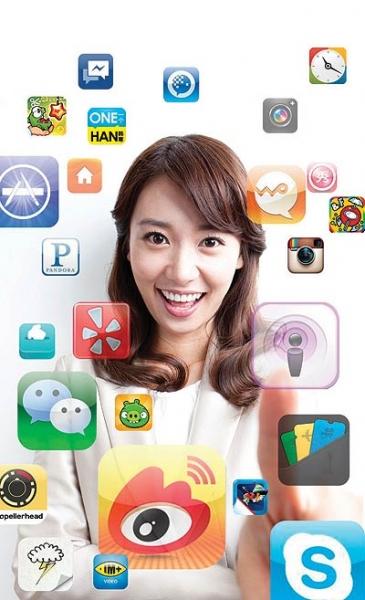
Although his 1-year-old smartphone still works perfectly, Li Jijia already feels the need to replace it.
盡管用了一年的智能手機(jī)完好無(wú)損,李繼嘉(音譯)已經(jīng)動(dòng)了想換新手機(jī)的念頭。
“It has been a year. There are many better ones available now,” said the 21-year-old education major at Central China Normal University. “It’s time to upgrade my phone.”
“已經(jīng)用了一年了,市面上出了很多更強(qiáng)大的手機(jī)。”就讀于華中師范大學(xué)教育學(xué)專業(yè)、21歲的李繼嘉說(shuō):“是時(shí)候換新手機(jī)了”。
Li’s impatience is shared by many. Shortly after the season when new gadgets are released, many consumers feel the urge to upgrade their electronic devices, even though the ones they have still work just fine.
很多人都像李繼嘉一樣急切。新品發(fā)布季剛過(guò),很多顧客便迫不及待地要更新他們的電子設(shè)備,即便舊的仍能正常使用。
As consumers obsess over Apple’s newly released products and debate whether the Google tablet is better than the new Amazon Kindle, it might be time to take a step back and ask: “Do we really need the latest upgrades?”
當(dāng)顧客們正癡迷于蘋(píng)果的新產(chǎn)品,熱議著谷歌平板電腦和亞馬遜Kindle閱讀器哪個(gè)更好時(shí),或許我們是時(shí)候該退一步好好想想了:“我們真的需要這些最新的電子產(chǎn)品嗎?”
New psychology
新一輪的心理戰(zhàn)
According to Donald Norman, American author of the book The Design of Everyday Things, “planned obsolescence” is the trick behind the upgrading culture of today’s consumer electronics industry.
《設(shè)計(jì)每天的生活》一書(shū)的作者、美國(guó)作家唐納德•諾曼認(rèn)為,隱藏在當(dāng)今電子行業(yè)不斷更新?lián)Q代文化背后的是“計(jì)劃性報(bào)廢”的把戲。
The New York Times cited Norman last month, saying that electronics manufactures strategically release new upgrades periodically, both for hardware and software, so that customers on every level feel the need to buy the newest version.
上個(gè)月《紐約時(shí)報(bào)》引用諾曼的話說(shuō),電子廠商們有計(jì)劃地定期發(fā)布最新的軟硬件升級(jí)產(chǎn)品,這樣一來(lái)每個(gè)層次的顧客都覺(jué)得有必要去購(gòu)買最新版本。
“This is an old-time trick– they’re not inventing anything new,” he said.
諾曼表示:“這還是過(guò)去的舊把戲——沒(méi)什么新點(diǎn)子。”
Thomas Wensma, a Dutch designer, despises the “planned obsolescence” of companies, as recently reported by UK-based The Guardian.
最近英國(guó)《衛(wèi)報(bào)》有報(bào)道稱,來(lái)自荷蘭的設(shè)計(jì)師托馬斯•文斯瑪十分鄙視許多公司采取的“計(jì)劃性淘汰”策略。
Wensma said this is a wasteful system through which companies – many of them producing personal electronics – release shoddy products simply because “they know that, in six months or a year, they’ll put out a new one”.
文斯瑪說(shuō)這是一種相當(dāng)浪費(fèi)資源的機(jī)制。在這樣的機(jī)制中,包括許多個(gè)人電子產(chǎn)品生產(chǎn)商在內(nèi)的企業(yè)們之所以推出劣質(zhì)貨,是因?yàn)椤八麄兦宄荒臧胼d之后,會(huì)有新品推出。”
But the new psychology of consumers is part of this system, as Wensma conceded to the newspaper: “We now want something new, something pretty, the next shiny thing.”
而如今消費(fèi)者心理的改變也成為該機(jī)制的一部分,文斯瑪向英國(guó)《衛(wèi)報(bào)》透露說(shuō):“現(xiàn)在我們都喜歡新奇炫的東西。”
Huge profits
暴利
“It’s to the detriment of the consumer and the environment,” as the New York Times quoted Norman. “But perhaps to the betterment of the stockholder.”
“這對(duì)消費(fèi)者和環(huán)境來(lái)說(shuō)是種傷害”《紐約時(shí)報(bào)》援引諾曼的話說(shuō):“但對(duì)股東們而言卻是好事一件。”
In its most recent fiscal year, Apple’s profit margin was more than 21 percent, reported the Los Angeles Times. At Hewlett-Packard, the world’s biggest PC manufacturer, it was only 7 percent.
據(jù)《洛杉磯時(shí)報(bào)》報(bào)道稱,蘋(píng)果公司最新年度財(cái)務(wù)報(bào)告顯示,其利潤(rùn)率超過(guò)21%。而作為全球最大的個(gè)人電腦制造商,惠普公司的利潤(rùn)率僅為7%。
“Steven Jobs pushed the principle of ‘planned obsolescence’ to new heights,” the newspaper commented on the company’s profits and marketing strategy. “Apple’s annual upgrades of its products generate sales of millions of units as owners of one year’s MacBook or iPhone line up to buy the newest version, even when the changes are incremental.”
“史蒂夫•喬布斯將‘計(jì)劃性淘汰’推向了一個(gè)新高度。”《洛杉磯時(shí)報(bào)》在評(píng)論蘋(píng)果公司的利潤(rùn)與營(yíng)銷戰(zhàn)略時(shí)如是說(shuō)道:“用戶們放棄了剛購(gòu)入一年的蘋(píng)果筆記本電腦Macbook或iPhone,再次排起長(zhǎng)龍去購(gòu)買最新產(chǎn)品,這樣一來(lái)蘋(píng)果公司每年的產(chǎn)品升級(jí)都帶來(lái)了數(shù)百萬(wàn)的銷量,盡管這些產(chǎn)品升級(jí)有時(shí)只是量變而非質(zhì)變。”
Peer pressure
朋友圈的壓力
As to Li Jijia, the need for upgrading his smartphone comes mainly from friends and classmates. When the majority of friends are switching to the latest devices, he worries about feeling left out.
對(duì)于李繼嘉來(lái)說(shuō),換手機(jī)的需求主要來(lái)源于朋友和同學(xué)的壓力。因?yàn)榇蟛糠峙笥讯紦Q了新的,他擔(dān)心自己落伍。
“Some apps and games require better hardware to run,” said Li. “If you don’t join in, you lose part of the connection to your friends.”
“有些應(yīng)用和游戲需要更好的硬件才能運(yùn)行,”李繼嘉說(shuō):“如果你脫離組織,就會(huì)跟朋友們格格不入。”


